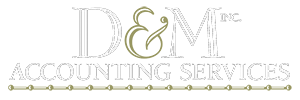Gift-giving during the holiday season has been a tradition for thousands of years. Today, we give presents to one another for Christmas, Hanukkah, Kwanzaa, and other faith-based or culture-specific holidays. Many people also contribute to their favorite churches and charities. Doing that is rewarding on a personal level. It can also provide a financial benefit.
The IRS recognizes documented contributions to qualified organizations as donations you can itemize on Schedule A of IRS Form 1040. That seems simple enough, but there are some strict guidelines on what can and cannot be deducted. In this article, we’ll review the criteria for that and offer some suggestions on how to avoid problems with IRS auditors.
What is a Charitable Contribution?
The IRS defines a “charitable contribution” as a “gift of cash or property to a qualified organization.” The keyword in that sentence is “qualified.” The Internal Revenue Service has specific guidelines that determine whether an organization qualifies. Two examples of this are 501(c)(3) public charities and religious organizations.
Organizations that are set up as non-profit organizations that have not achieved 501(c)(3) status may be able to accept a donation, but the contributor may not be able to deduct it. This is an important distinction for taxpayers because an IRS auditor may challenge the validity of a contribution deduction if the organization doesn’t meet the “qualified” criteria.
The best way to avoid problems with this is to request proof of 501(c)(3) status whenever an organization solicits a contribution from you. That includes requests to contribute to fundraisers like golf tournaments and music shows. Those tickets might say “donation” on them. That doesn’t mean you can deduct the money you spend. Talk to your accountant about that.
IRS Guidelines for Deducting Charitable Contributions
The standard rule at the IRS is that you can deduct qualified contributions totaling up to 60% of your adjusted gross income (AGI). That number was increased to 100% in 2021 so people could give more to pandemic relief efforts. The exception was not extended into 2022 and beyond, so the contribution limit for 2023 remains at the standard 60%.
Donating 60% of your AGI sounds like a lot, but it’s not uncommon for affluent individuals to max out their contribution deduction. People of faith who tithe (give 10% of their income) regularly are also likely to increase that tithe with a significant offering during the holiday season. If that’s your situation, check the numbers to confirm deductibility before giving.
Don’t let the business aspect of this take away from the joy of giving. Benjamin Franklin said, “Nothing in this world is certain except death and taxes.” You can’t take your money with you, but you can cut your tax bill down if you’re making contributions. That should add a little cheer to your holiday spirit. At the very least, it could make for a happier new year.
Gather Your Contribution Records Before the Tax Deadline
Deducting charitable contributions can be more complicated than it seems. To simplify it, gather all the documentation you can find on any “contributions” you made during 2023. Do they each “qualify” as contributions that will withstand the scrutiny of an IRS auditor? Now is the time to look at that. You don’t want any surprises come tax time.
Non-profit organizations achieve a 501(c)(3) charitable status by submitting IRS Form 1023, Application for Recognition of Exemption. Those filings are public record, making it simple to confirm an organization’s eligibility for tax-deductible contributions. You can do an online search for them, or you can simply ask the organization for documentation of their IRS status.
Did you get a receipt for your donation? If not, did you pay by check? The canceled check may not be enough for the auditors. Ideally, you’ll want the check and a receipt to prevent any challenges to the transaction having been made. Combine that with evidence that you’ve given to a qualified organization. That should eliminate any problems with the auditors.
Plan and Automate Next Year’s Contributions
Going through your contribution records for 2023 might uncover a few donations you should not have made. It might also reveal a good cause or two that you want to donate to next year. Save the documentation for those in a separate file and review your budget to see what you can afford to donate to them in 2024. Bookmark that number as a placeholder.
The next step is deciding how to donate. Many organizations provide a platform for donors to automate donations. That’s a good idea if you know that you can afford what you commit to. Those donation platforms typically produce year-end statements that can be used for tax documentation. Your accountant will thank you if you have those.
Keep in mind that financial circumstances can change. It’s a good idea to review automated contributions every quarter to ensure you don’t get overextended. If your income fluctuates, wait until the end of the year, and make a lump-sum donation. Independent contractors and small business owners should adopt this approach to secure end-of-year tax deductions.
Don’t Forget About Capital Gains and Losses
According to the IRS, “gross income” includes wages, dividends, capital gains, business income, retirement distributions, and other forms of income. That means capital gains are also a part of adjusted gross income. Losses are too. That can create a significant variation when you calculate the 60% of AGI the IRS has set for a charitable contribution limit.
The good news here is that capital losses can reduce your tax liability because they lower your adjusted gross income. The bad news is that capital gains can have the opposite effect. Failing to pay attention to this can be costly. Have your accountant carefully review your W2s and 1099s to make sure you don’t miss any income or adjustments due to capital losses.
If you want to learn more about the process or have questions about your charitable contributions, contact us today and we’ll schedule a time to go over your documents!



